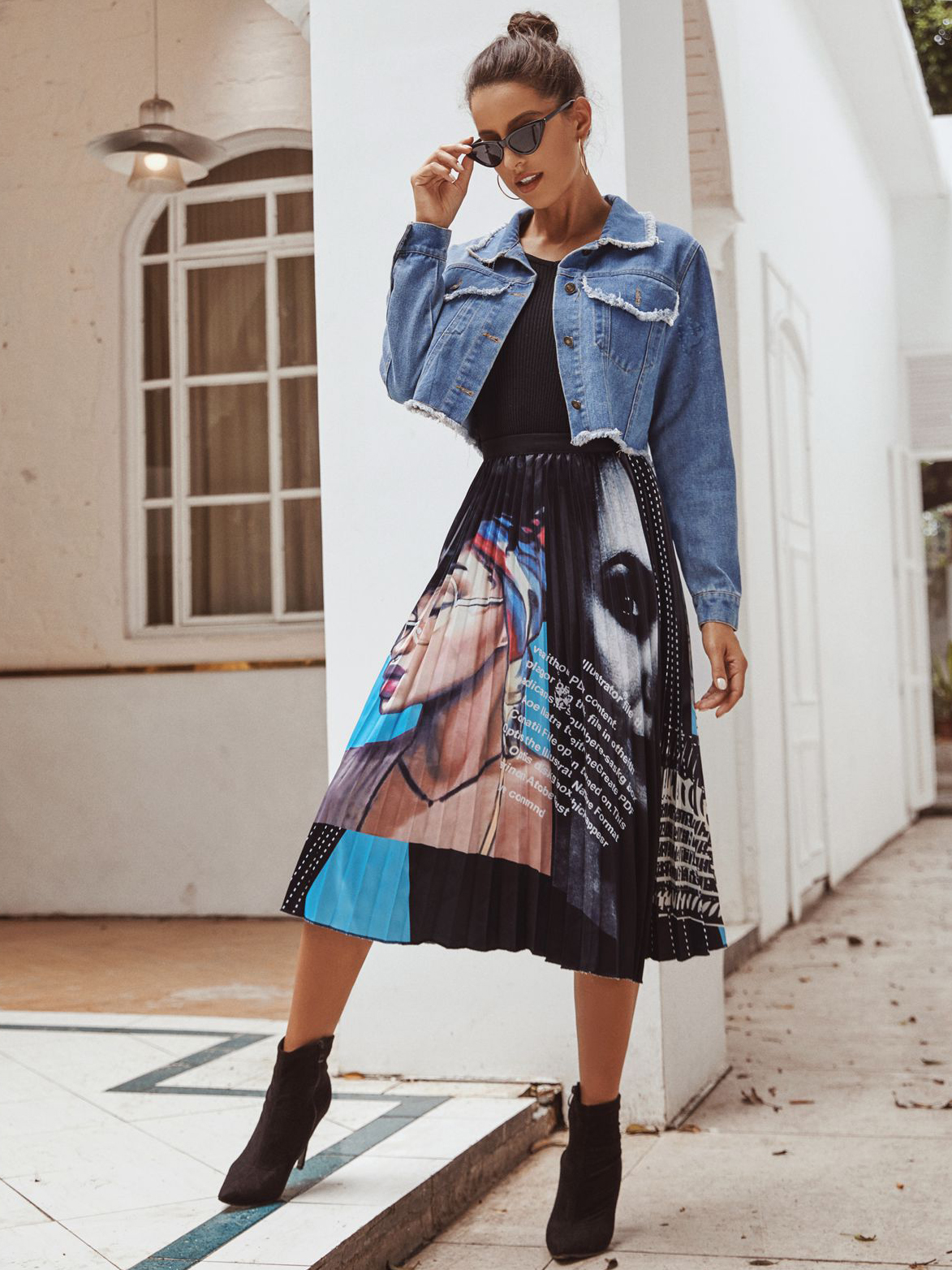SPOILER WARNING: Spoilers for the following shows are discussed: Neon Genesis Evangelion, Mobile Suit Zeta Gundam
Sometimes you step through some sort of dimensional rift. People on the other side don’t have goatees and evil grins, but rather friendly faces in the future. Then you get up, dust yourself off, and wonder where in blazes the last two weeks have gone. Assuming there isn’t an evil editor rewriting my backstory as we speak, let’s just say I ought to shape up, and move swiftly on.
So, about a year and a half ago, I was talking about Beast Wars: Transformers with a work mate of mine. This colleague did not enjoy Beast Wars but was a fan of the original Transformers series. I mentioned that one of my favourite Transformers was Blackarachnia (despite certain problematics I’ll go into later).
‘Ah, no,’ he said, ‘that whole deal is stupid.’
‘What do you mean,’ I asked.
‘Her, you know! A female Transformer! Robots don’t have genders!’
‘Oh yeah? Then why are all the other robots, both in the old show and Beast Wars, voiced by male actors, treated as males and referred to as hes?’
Silence.
The truth is, giant robots tend to have genders. And this is an issue that began to fascinate me as I explored it more and more, being as I am a giant robot nut. Today I’ll share a few patterns I’ve observed in anime and manga. Generally speaking, western realisations of giant robots are less human, and rely more on the idea of actual machinery (see Mechwarrior for example). Most Japanese productions, on the other hand, present the robot in more humanoid terms.
Frenchy Lunning’s essay in Mechademia volume 2, entitled ‘Between the Child and the Mecha’, illustrates the reasoning, conscious or no, for the prevalence of giant humanoid robots in japanese animation. (And I feel like I’m about to take a wrong step here, since Lunning is a Ph.D who has done a great amount of anime-related scholarship. Let’s just say I’m prepared to get whipped into oblivion in the comments for misrepresenting her ideas.)
She presents that the mecha is the external expression of the inner desire of the pilot, and how the mecha basically becomes the pilot, representing and iconising him or her. So, let’s go back to the very first piloted mecha, Mazinger Z (known in the United States as Tranzor).
Mazinger is a powerful robot, piloted by brash youth Koji Kabuto. Among Koji’s allies is Sayaka, who pilots Aphrodite-A. Aphrodite is a female mecha in a completely stereotyped way: it’s designed for peace rather than the war-like Mazinger, and despite being made of the same material as Mazinger, it suffers damage much more easily. I suppose I don’t need to add the word ‘essentialism’ here, but I’ll just toss it out there anyway.
After the Super Robot era that Mazinger heralded, giant robot anime evolved into the Real Robot era with Mobile Suit Gundam. The robots in Gundam were still predominantly piloted by men, and followed the same design cues of previous eras, but adding a touch of realism. The Gundam series, by now, has evolved so much that summarizing the gendering of its mecha (and its human cast) would require a whole separate article. However, let’s take a look at the ‘golden age’ of Gundam, during the first few shows of the Universal Century. In Mobile Suit Gundam, there are only two female pilots: Sayla Mass and Lalah Sune. Neither of them pilot humanoid machines, but rather a fighter plane and a ‘monster of the week’ Mobile Armor. Lalah sees herself involved in a star-crossed affair, which would become a series staple. In Lalah, the creators also started another tradition: the mystified female enemy pilot. By mystified, I mean that said pilot is either mystical, bordering on the supernatural (thus ‘othered’) or, in many cases, mentally unstable (thus victimised and ‘othered’).
A perfect example of this is one of the antagonists of the first sequel series, Mobile Suit Zeta Gundam (who becomes the main antagonist of its sequel, Mobile Suit Gundam ZZ). I’m talking about Haman Khan, leader of the Axis Zeon. To provide some background, Khan is a charismatic leader, who finds herself and her faction being pivotal to deciding a civil war. After the civil war ends, Haman’s forces are in prime position to take over the Earth and its Colonies. Khan is a dictator, a powerful, cunning leader, a beautiful woman and an incredibly strong, superhuman pilot. Yet she is female, something that is remarked as ‘strange’ more often than not, as it contradicts the happy essentialism we’ve come to know and love in comics and animation. In any case, Khan pilots the sleek newtype-use Mobile Suit, the Qubeley. Qubeley is unique in its design for many reasons. It is not boxy, and it’s not quite humanoid, for one, contradicting Gundam design principles. In fact, while most robots in Gundam are designed with practicality in mind, Qubeley’s look seems more aesthetic than anything else. Instead of straight lines, we have curves. Instead of primary colour schemes (or military ones), it’s mostly pink, white and purple. Oh yes, and it doesn’t even use conventional weapons. When Qubeley shows up, it is certainly an ‘other’ among mobile suits, and it manifests the ’strange female evil’ idea quite well. The follow-up would see a legion of Qubeleys, piloted by a legion of clones of… a young girl. I don’t think any man has ever piloted a Qubeley in any Gundam story.
(As a side note, while the human mecha in 1982 production Macross are quite realistic and thus relatively neutral, the mecha of the alien Zentradi race is not. The female Zentradi pilots utilise vastly different machines, which are more humanoid but also more stylised and curvy in their design. This is the first instance, in the Real Robot era, of machines being assigned genders on purpose, as it predates Zeta Gundam by three years.)
This segues well into my look at the next bit of mecha history, which is the body of work of Mamoru Nagano. Nagano designed the Qubeley and a few other mecha for Zeta Gundam, with his own unique style. He then went on to create the epic manga The Five Star Stories, which featured more of his sleek, unique designs, many of which are intentionally female-looking. In FSS, the robots tend to have a very close, personal link with their pilots, and can be seen as their will manifest. However, I will leave this for another article, since untangling the complex interactions of gender in FSS is, once more, a story unto itself.
Readers may be surprised to know that giant mecha anime went into decline by the early ’90s. By that point, with the exception of successful series like Macross, Gundam, and Patlabor, the genre was not fertile ground for too many productions, mainly due to its budgetary requirements. As such, innovation in mecha starts to slow down, with the most notable ’90s landmark being Neon Genesis Evangelion.
Evangelion’s mecha are unique, not just because of their design but by the fact that they are not actual mechs. They are basically gigantic cyborgs, mostly organic, the armor there to control the living being that is the Eva unit. I will go on a limb and say that the EVA mechs never felt male to me. There always seemed to be a sort of androgynous quality to them. It is ironic, then, that being Evangelions basically large-scale human clones, they are in fact the least gendered in their design. The film ‘The End of Evangelion’, however, throws a spanner in the works by clearly defining the EVA-01 as a clone of Lilith, thus female, and the rest of the EVAs as clones of Adam, thus male. As far as I’m aware, this is the first time when a mecha’s sex itself is discussed, albeit indirectly, in an animated series (I believe Mamoru Nagano’s Mortar Headd’s do, in fact, have separate sexes).
This brings us mostly up to date. I admit to not having seen a recent, quite relevant show called Rahxephon. With that exception, however, many mecha anime have not innovated so much in the presentation of the mecha, as they have in writing and story style. Thus, I have not myself witnessed any radical evolution since Evangelion’s take on the subject.
To wrap this up, I’ll just pose a question to you, dear reader. Why this gendering of giant robots? My take on it follows Lunning’s thesis that the mecha are an expression of desire, of the inner will of the pilot. Moreover, the pilot is often an iconised character designed for the audience to relate. Hence why many mecha anime have teenage boys as the pilots: they are, or at least have historically been, the main audience. Which, in turn, gives us a good inkling as to why robots must be gendered: the robot itself is not gendered, but rather its pilot is, and this gendering transfers to the robot in question. Zeta Gundam’s relevant female characters all pilot ’special’ mecha with important symbolism, though not necessarily ones I would gender as ‘female’. In Macross, the Zentradi culture is divided strictly along gender lines, which explains why Zentradi women have differently designed vehicles: they are an expression of their own view of themselves.
The Evangelions, thus, work well with this theory. Their nature is mysterious and ambiguous. Troubled, if I were moved to use that term in all of my posts which I assure you, I am not. The pilots of Evangelion are also deeply troubled, their personalities and desires unresolved and often dubious.
But I’ll tell you what I’m not dubious about. Optimus Prime is a dude. And he leads a race of dudes. Why is that? Because the audience for Transformers was little boys, and we all know that girls are i-ckay!
Comment on this post in the forums!



